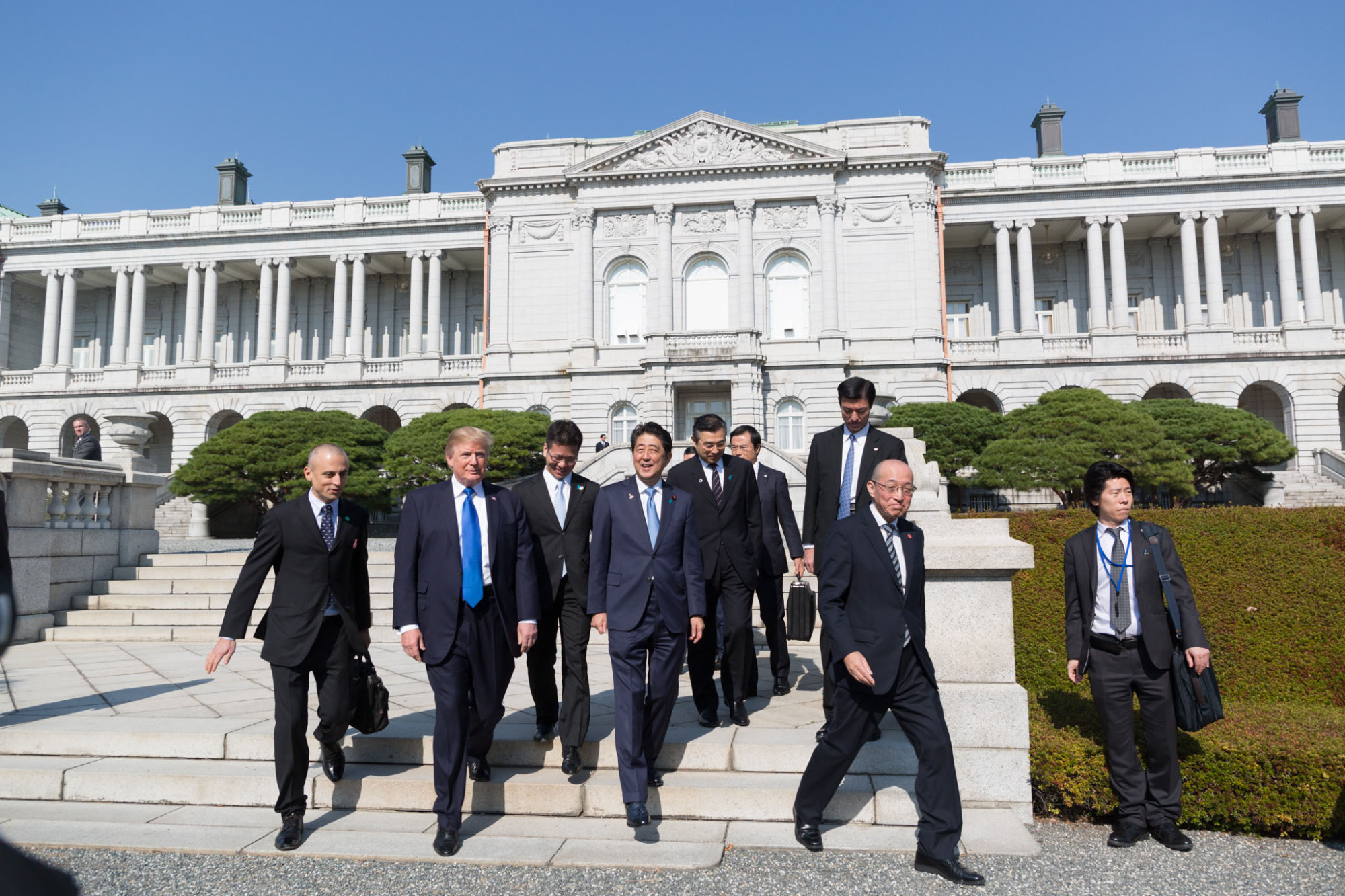The unexpected victory of Donald Trump saw a variety of responses from Northeast Asia's leaders. Prime Minister Shinzo Abe quickly took a trip to Trump tower for a tete-a-tete. President Xi Jinping, on the other hand, waited until Trump explicitly accepted the one-China policy before engaging in dialogue. This patience was characteristic of Xi's pensive approach to foreign policy, but also an indication that Washington-Beijing relations are of paramount importance to achieving Xi's Chinese Dream.
Similarly, South Korea — despite being distracted by President Park Geun-hye's impeachment — preferred to try and finesse its way through controversial remarks from the U.S. president. This has not been without hiccups as North Korea's post-election belligerence and Olympic diplomacy as well as Trump's commitment to denuclearizing Pyongyang, have tested the alliance and South Korean leaders.
More startling for regional leaders is that Trump's campaign promises included withdrawing from the Trans-Pacific Partnership, slapping tariffs on China, opening up Taiwan to official visits from U.S. officials and potentially pulling out of the free trade agreement between the United States and South Korea, known as KORUS.



